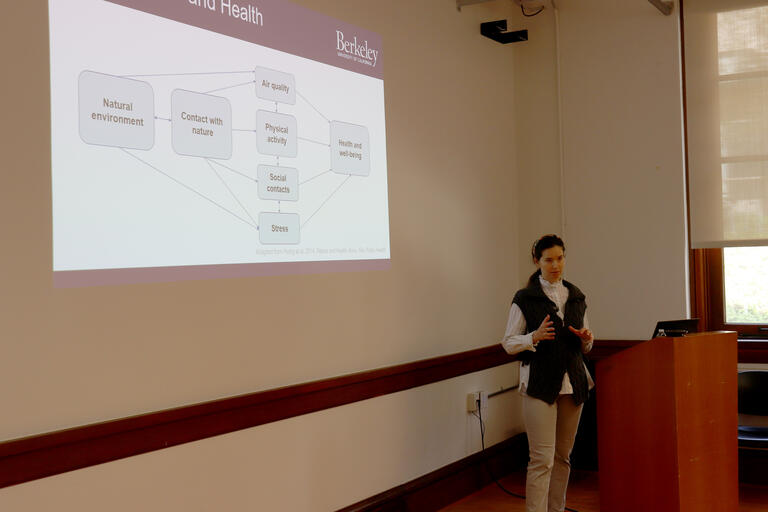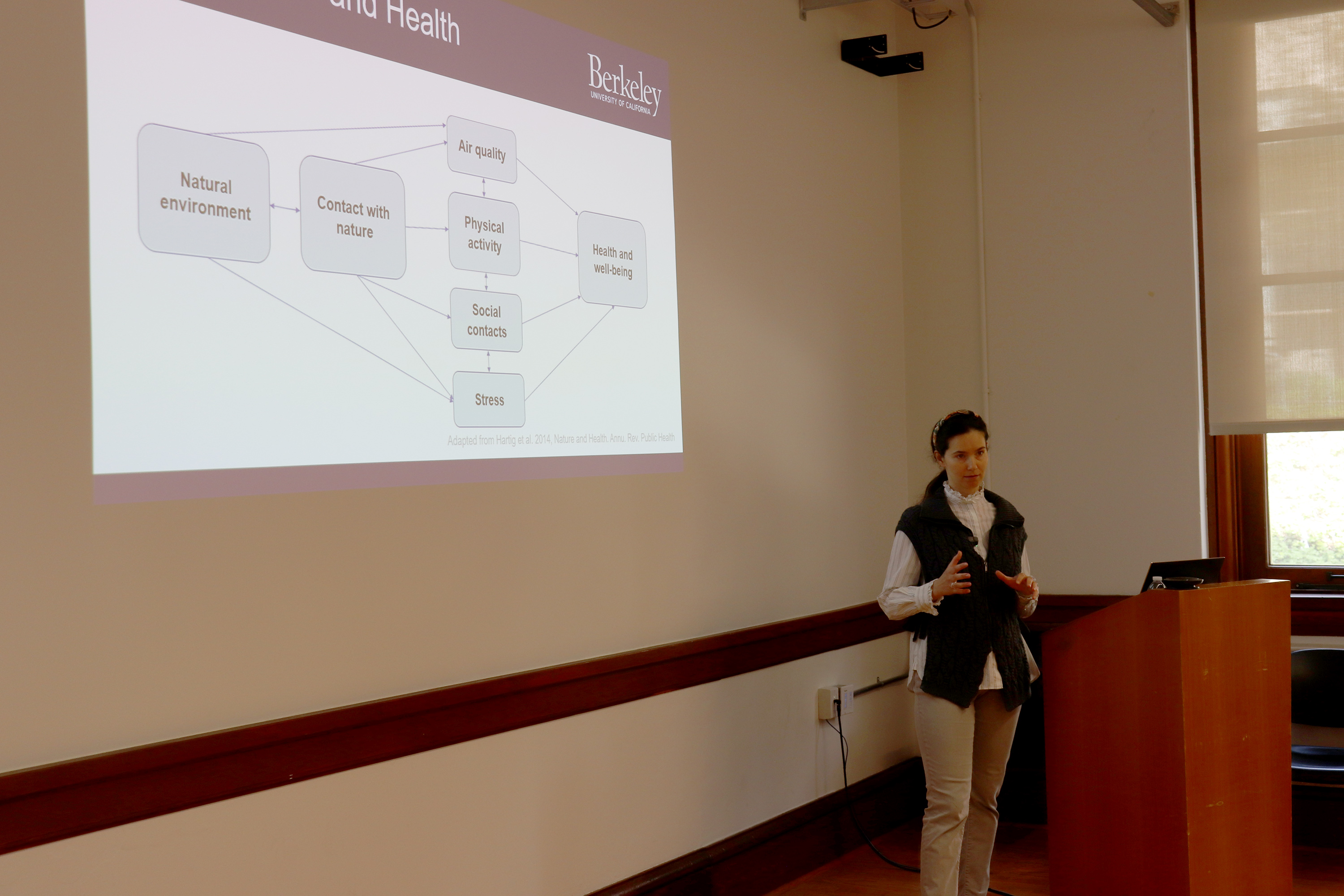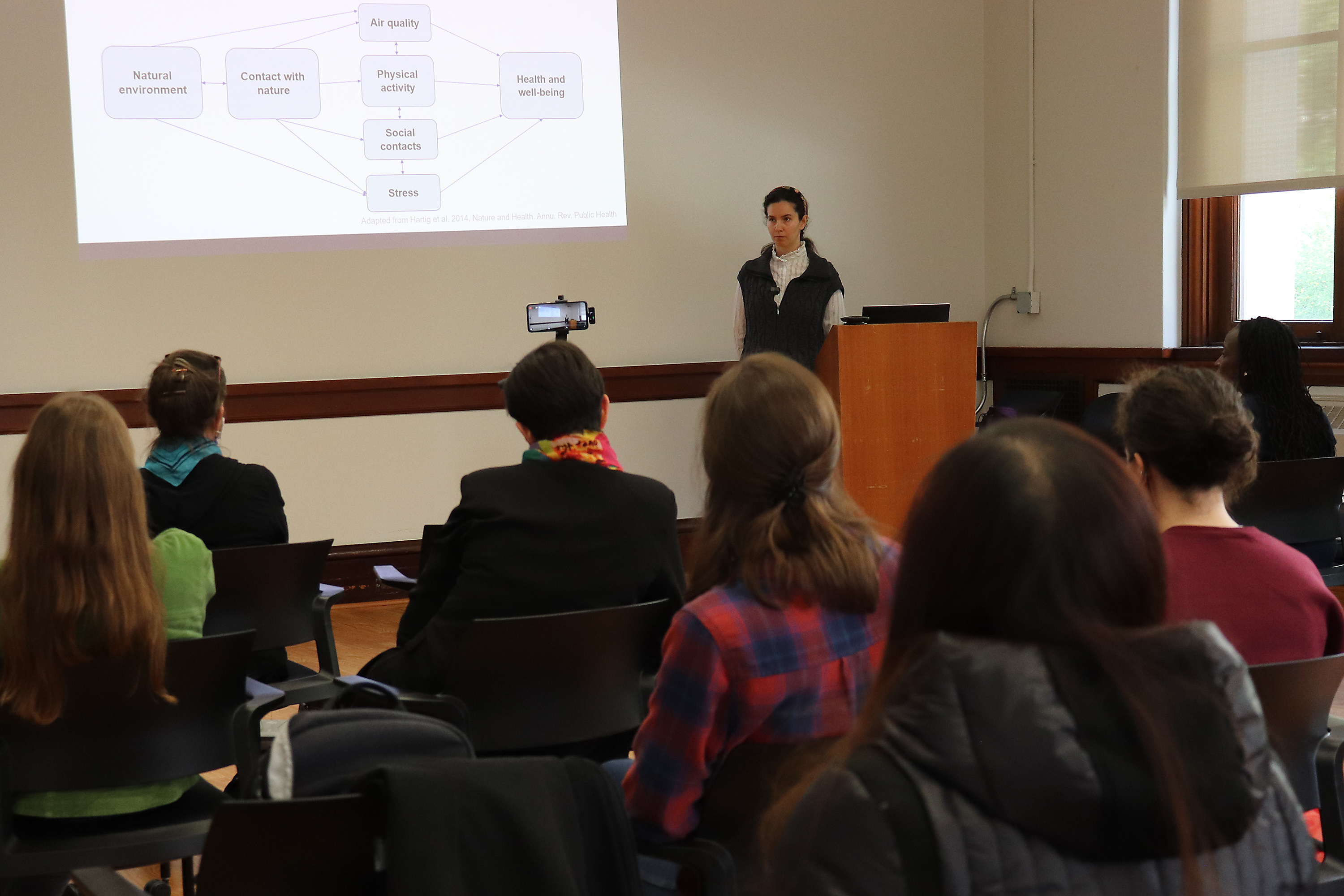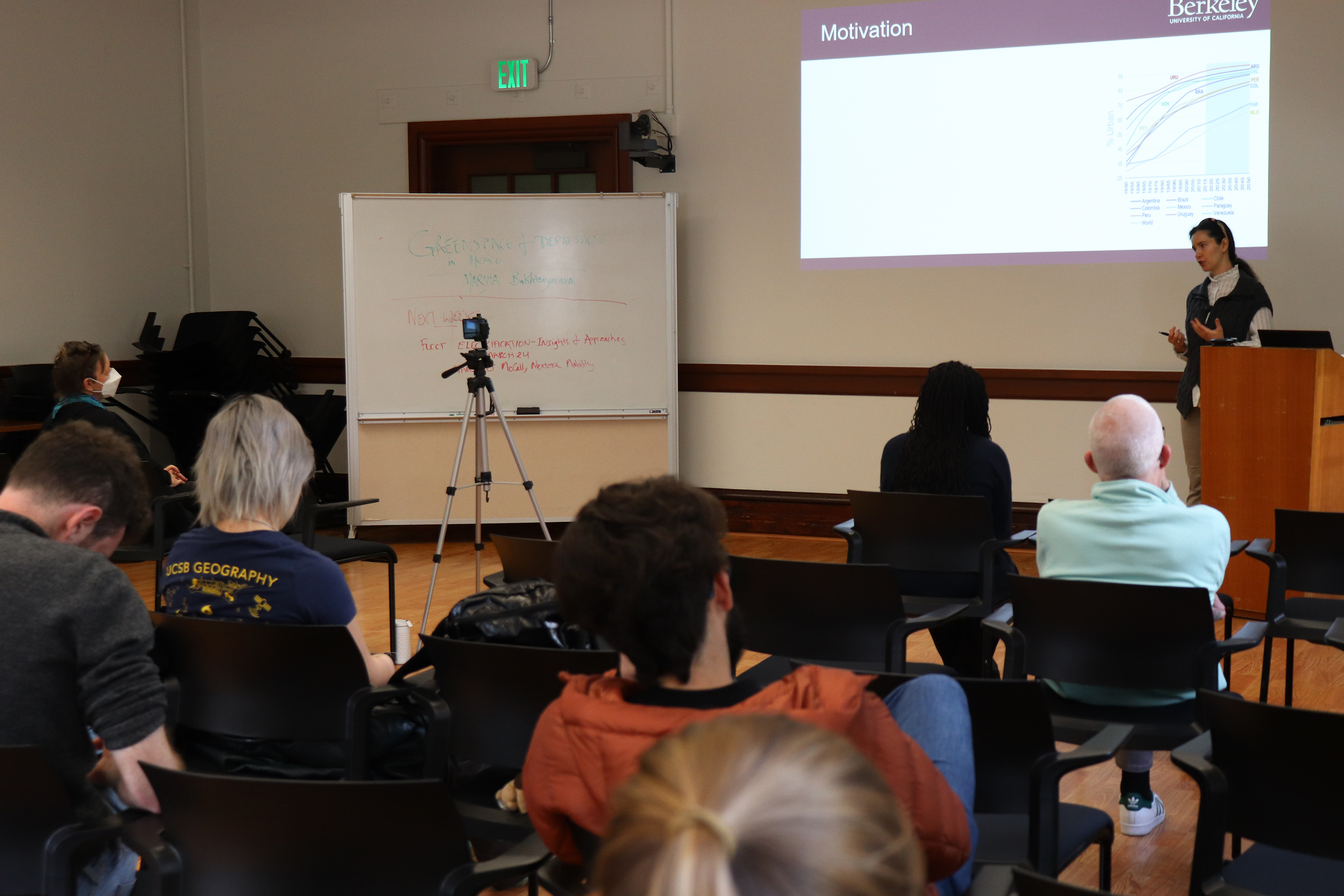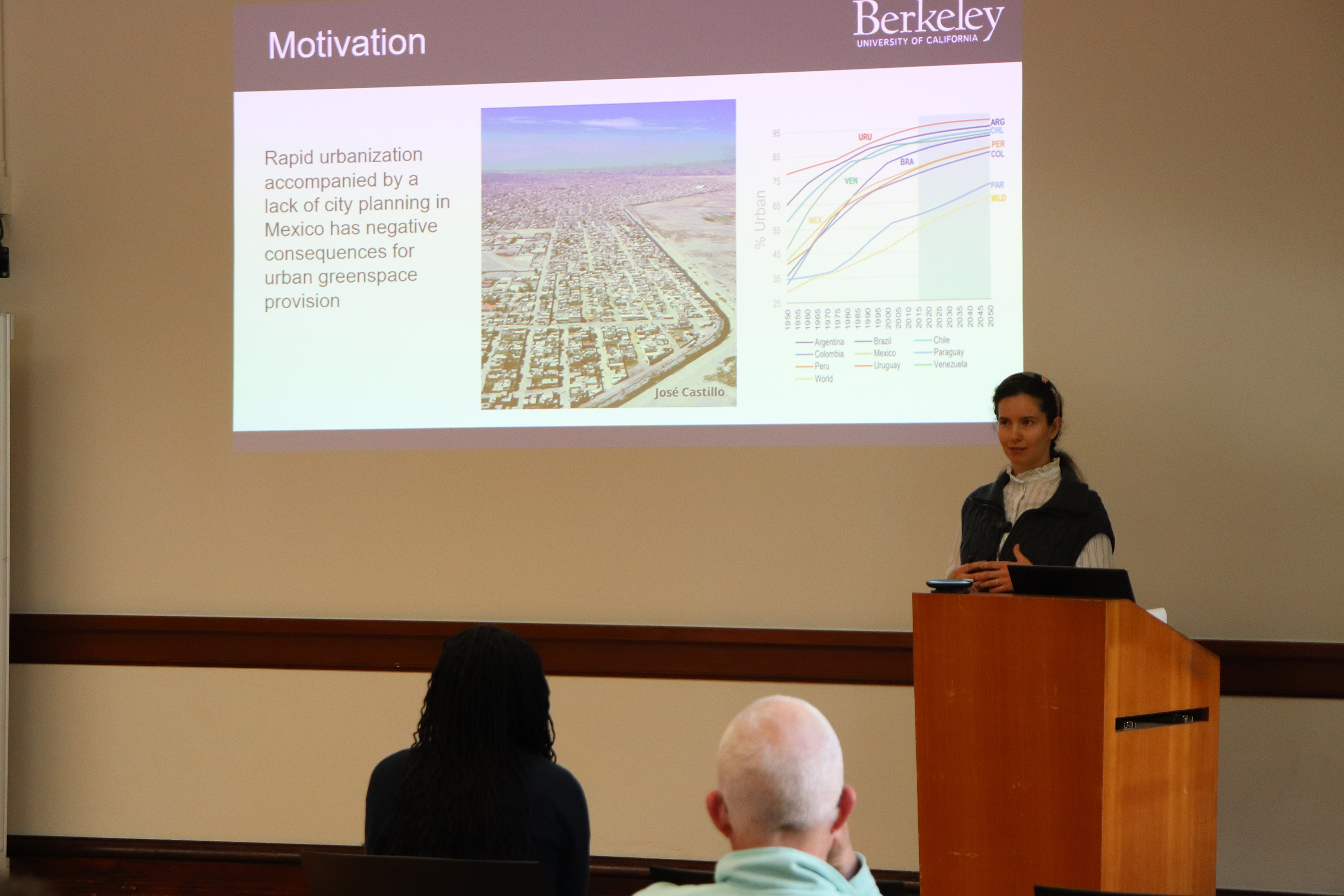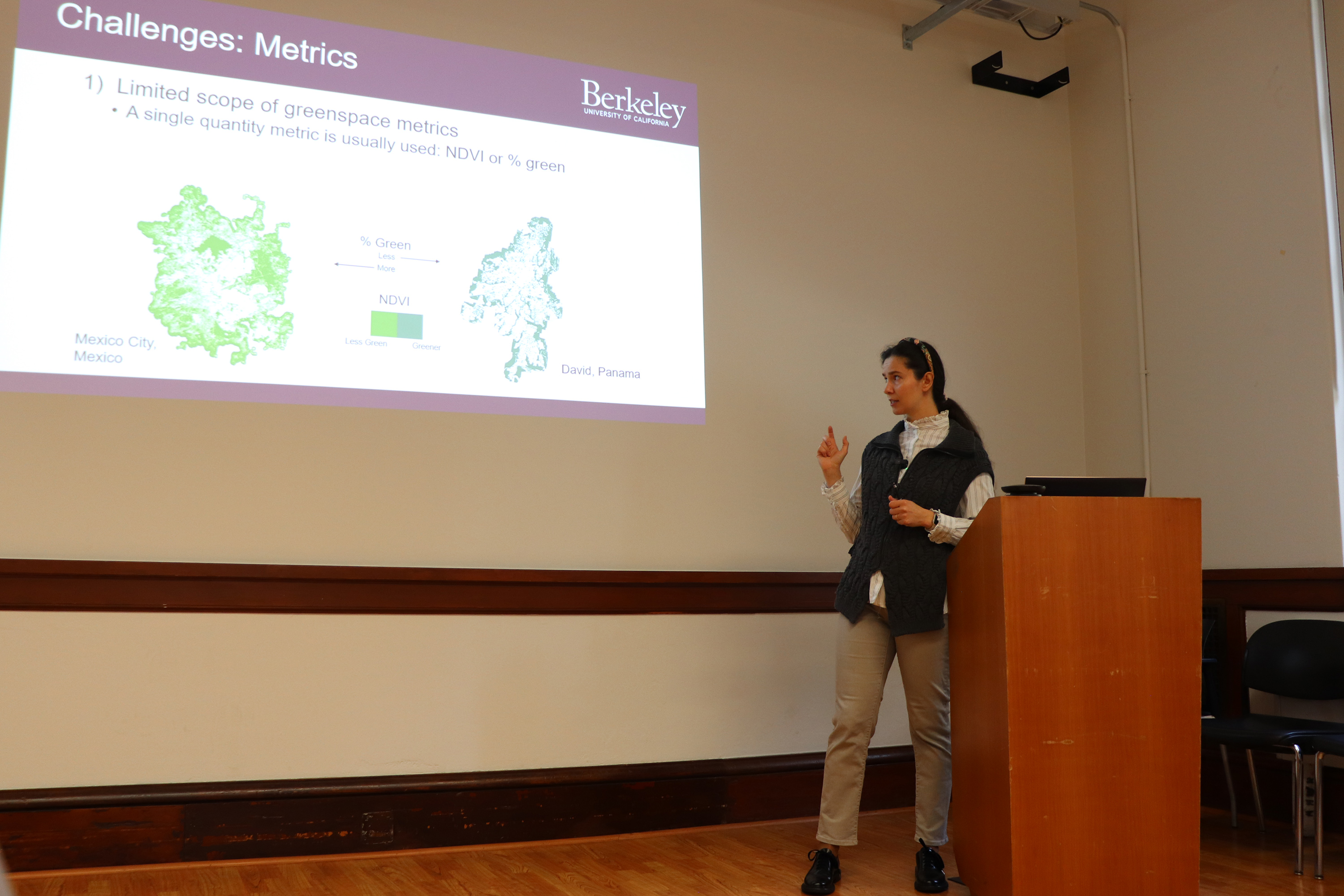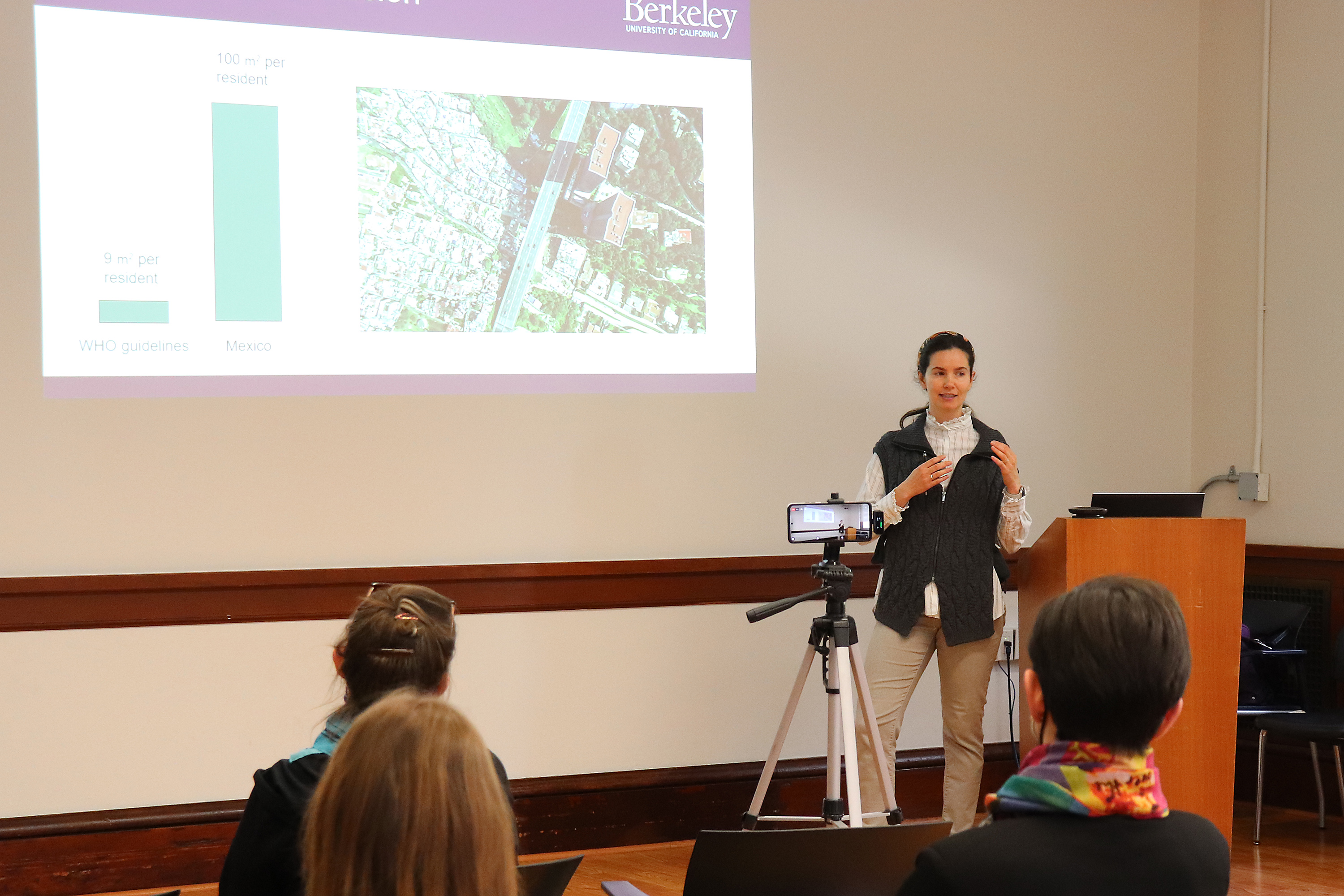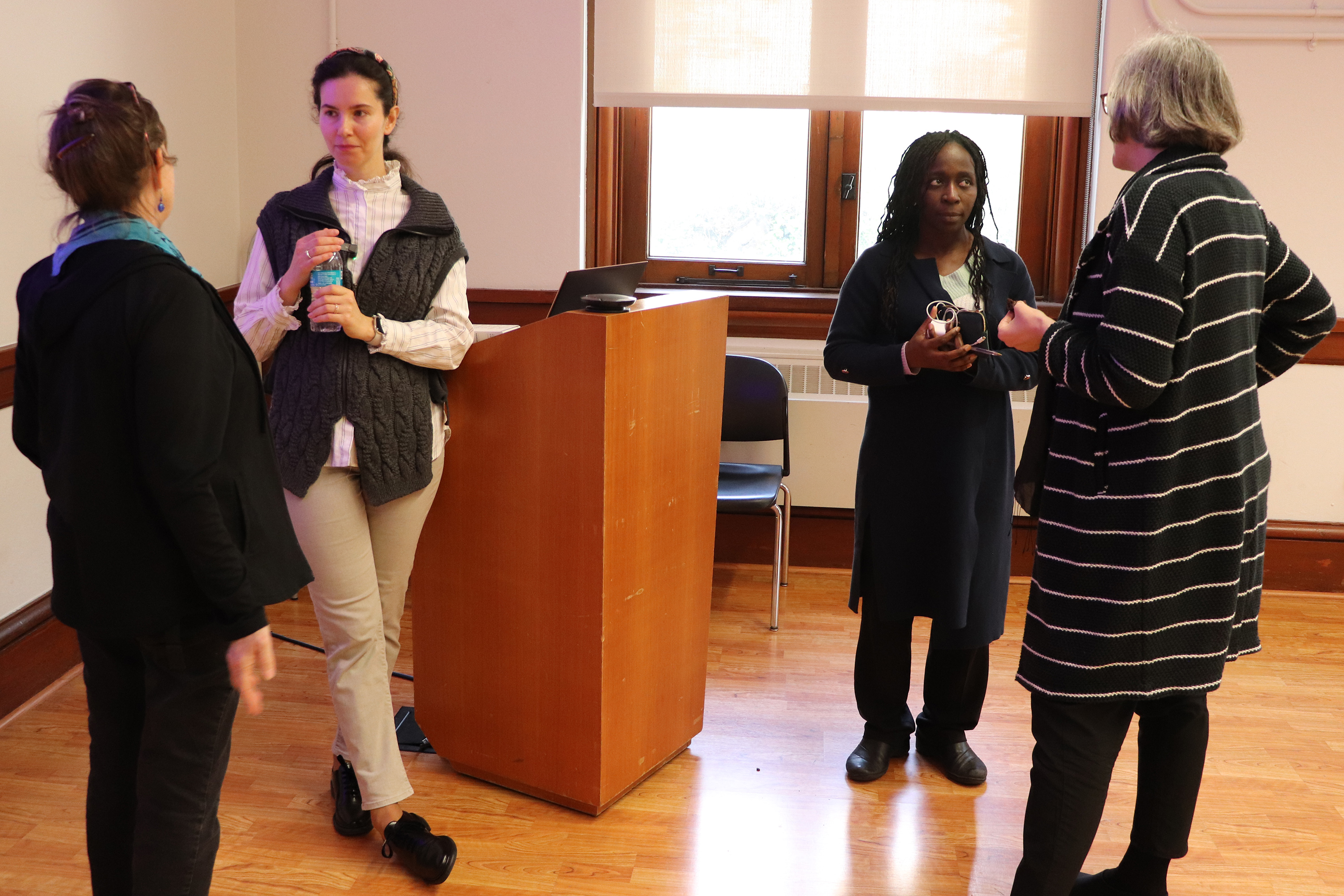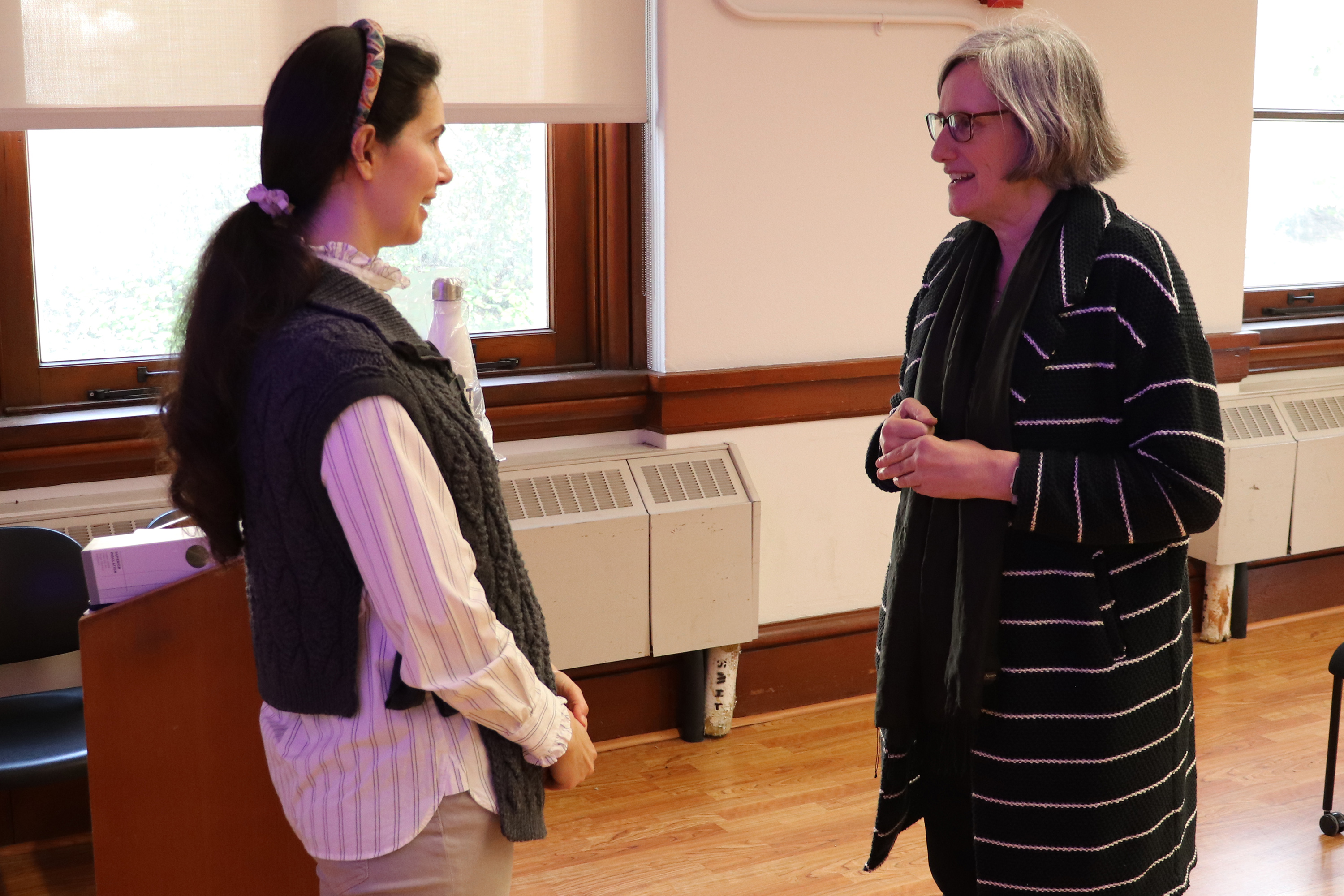UC Berkeley Postdoctoral Researcher Maryia Bakhtsiyarava presented Greenspace and Depression in Mexico: Different greenspace metrics and different spatial scales on Friday, March 17, 2023 at the ITS Berkeley Transportation Seminar.
Abstract:Mental health disorders have been among the top ten causes of the global burden of disease. The number of people at risk for mental disorders, including depression, is projected to increase in the face of the current demographic, socioeconomic and environmental trends: a growing population of young people in low- and middle-income countries and a global aging population all face a world with rising inequality, conflict, and climate crisis. The scientific community has taken on a more holistic approach to understanding the determinants of mental health acknowledging not only individual-level factors but also the role of the environment – including the built and natural environment. The natural environment is particularly salient for mental health in cities, where rapid urbanization contributed to high population density, a high percentage of area covered by impervious surfaces, and diminished opportunities for everyday contact with nature. In this talk, I will discuss the current challenges in greenspace-health research with a focus on mental health, and possible ways to address them.
Bio:Dr. Maryia Bakhtsiyarava earned a BS in Geography with a concentration in Geographic Information Systems (GIS) from Belarusian State University, and a PhD in Geography from the University of Minnesota – Twin Cities. At the University of Minnesota, Maryia received formal training in demography and population studies as part of the NIH-funded Population Training Program. Bakhtsiyarava’s work integrates approaches from geography, demography, climate science, remote sensing, and epidemiology. She draws on her extensive experience in working with large datasets to combine data on people – from population surveys, censuses, administrative records – with data on the environment derived from gridded datasets, remotely sensed images, emissions inventories, and others.Most recently, she has been a postdoctoral scholar at UC Berkeley working with Prof. Daniel A. Rodriguez on a project investigating the social and environmental determinants of health and health disparities in Latin American cities.

